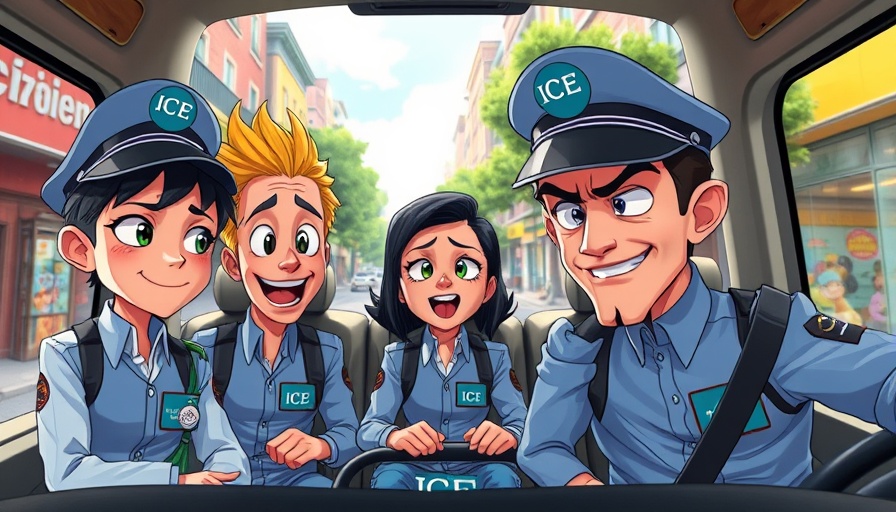
Kirsti Noem's Latest Response to 'South Park': A Deep Dive
South Dakota Governor Kristi Noem has recently found herself at the center of a media storm after the animated series 'South Park' aired an episode that satirizes her approach to women’s rights. The episode in question portrays Noem, highlighting her firm positions on women’s bodies and reproductive rights, thereby drawing attention to the ongoing debate surrounding these contentious issues. In a recent statement, Noem dismissed the show's portrayal, asserting that it adheres to a trend of 'lazy' liberal critiques often aimed at women in positions of power.
Unpacking the Political Commentary in 'South Park'
The episode’s satire is a reflection of the socio-political climate in the United States, particularly regarding women's rights. Many speculate the show's creators intended to challenge traditional views on how women, especially political figures like Noem, are portrayed and critiqued. The response from the public has been mixed, triggering a blend of outrage and laughter, which South Park has always managed to evoke.
The Impact of Satire on Public Perception
While Noem argues that the portrayal is unfair, it raises the question: What role does satire play in shaping our views of public figures? For many, humor serves as a tool for discussing serious issues, prompting us to question the status quo. Celebrity news today often reflects this duality—celebrities and public figures become subjects of scrutiny and reflection.
Local Reactions: Voices from South Dakota
In the wake of Noem’s response, local South Dakotans have expressed varied sentiments. Some support her stance, arguing that she represents traditional family values, while others believe that the issues presented in 'South Park' reflect deeper realities of lived experiences for many women in America. Stories of how women feel represented or misrepresented in media are crucial—for local community building hinges on talking openly about these perspectives.
Beyond the Episode: Trends in Pop Culture Commentary
This isn't the first time 'South Park' has tackled political figures; it creates a trend in entertainment and creates frequent chatter in entertainment news headlines. The swift reaction from both Noem and viewers alike underscores the overarching relationship between political discourse and pop culture. As viewers, we must question what influences these narratives have on our perspectives—how they steer conversations around rights, representation, and identity.
A Look Ahead: What Lies Beyond 'South Park'
As we examine the intersection of entertainment and politics, it’s important to note how increasingly influential shows like 'South Park' can be in driving conversations. The trends in entertainment show that artists and comedians are often at the forefront of challenging societal norms and expectations, prompting a reevaluation of what is acceptable in public discourse.
Kristi Noem: What’s Next?
Looking toward the future, many are left wondering how this episode will affect Noem's political career. Will she continue to push against what she describes as liberal attacks? Or will she take a step back, reevaluating her public persona in light of what is being said about her in popular culture? While some question her approach, others join her in what they see as a fight for women’s representation in politics.
Engaging with the Narrative
Our response to portrayals of political figures like Noem is a reflection of our larger societal attitudes. Whether you’re an avid viewer of 'South Park' or someone who prefers traditional news outlets, engaging with different narratives is essential. It's those conversations that create an informed public, better equipped to navigate the complex landscape shaped by cultural commentary.
Take Action: Join the Conversation
As we see more crossover between entertainment and political discourse, it's vital for you, the audience, to explore your own opinions. Stay updated with the latest movie releases and streaming platform updates to enjoy entertainment critically. Engage in local discussions around women's rights and representation. Your voice, your beliefs, and your stories help shape the landscape of both media and politics.
 Add Row
Add Row  Add
Add 




Write A Comment